Essential Emergency Contacts Everyone Should Have
In today's fast-paced world, the importance of having a well-organized list of emergency contacts cannot be overstated. Imagine being in a critical situation—your heart racing, your mind cluttered with worry. In those moments, having the right numbers at your fingertips can make all the difference. Whether it’s a family member, a medical professional, or local emergency services, knowing who to call and having their information readily available can significantly enhance your response time and ensure that help arrives swiftly. This article dives into the crucial emergency contacts that everyone should have, providing a comprehensive guide to keeping you and your loved ones safe.
First and foremost, having immediate family and close friends as emergency contacts is vital. These are the people who know you best and can provide support, information, and assistance during crises. Imagine being in a car accident or experiencing a sudden health issue; having someone you trust on speed dial can be a huge relief. Make sure to include:
- Your spouse or partner
- Parents or guardians
- Close relatives
- Best friends
These individuals can help coordinate care, provide emotional support, or even assist with logistics during emergencies. It’s wise to have their contact details saved in your phone and written down somewhere accessible at home.
Knowing your primary care physician and specialists is essential for health emergencies. When every second counts, quick access to their contact information can expedite treatment and ensure continuity of care. For instance, if you have a chronic condition, having your specialist's number handy can be crucial during a flare-up. Keep a list of:
- Your primary care physician
- Any specialists you see regularly
Also, don’t forget to include any medications you take, as this information can be vital for medical professionals in emergencies.
Familiarizing yourself with nearby hospitals and their contact details is crucial. In emergencies, knowing where to go can save valuable time and ensure you receive prompt medical attention. Make a note of:
- The nearest hospital
- Any specialty hospitals (like trauma or pediatric centers)
By having this information readily available, you can quickly direct emergency responders or make decisions about where to go for treatment.
Having the direct phone numbers for emergency rooms can facilitate quicker communication during a medical crisis. If you’re experiencing severe symptoms, calling ahead can prepare the staff for your arrival, allowing for faster decision-making and treatment. Keep this information easily accessible, as it can be a lifesaver in critical situations.
Urgent care centers can be a quicker alternative for non-life-threatening issues. Knowing their locations and contact details ensures you have options for immediate medical attention outside regular hours. These facilities often have shorter wait times compared to ERs, making them ideal for situations that require prompt care but aren’t life-threatening.
The Poison Control Center is a critical resource for emergencies involving toxic substances. Accidental poisonings can happen, especially in households with children or pets. Keeping their number handy can provide immediate assistance and guidance in potentially life-threatening situations. This resource can help you determine the best course of action, whether it’s administering first aid or getting to a hospital.
Familiarizing yourself with local emergency services, including police, fire, and ambulance, is essential. Having their contact numbers ensures you can quickly reach out for help during urgent situations. In a crisis, every second counts, and knowing who to call can save lives.
Knowing how to contact your local fire department is crucial for fire emergencies. Quick access to their number can facilitate rapid response and potentially save lives. In a fire, panic can set in, and having this information at your fingertips can help you stay calm and focused.
In situations requiring law enforcement, knowing your local police department's contact information is vital. This ensures you can report incidents or seek assistance promptly when needed. Whether it’s a break-in or a lost child, having quick access to police services can make a world of difference.
Having your insurance provider's contact information readily available can expedite claims and assistance during emergencies. It’s essential for navigating the complexities of insurance coverage in urgent situations. Imagine being in a car accident and needing immediate guidance on how to file a claim—having that number saved can alleviate a lot of stress.
In medical emergencies, knowing how to reach your health insurance provider can streamline the process of receiving care and understanding coverage options available to you. This can help you make informed decisions about your treatment and avoid unexpected costs.
For vehicular accidents, having your auto insurance provider's number ensures you can report incidents immediately and receive guidance on claims and repairs, minimizing stress during an already challenging time. Being prepared can help you navigate the aftermath of an accident more smoothly.
Q: Why is it important to have emergency contacts?
A: Having emergency contacts ensures you can quickly reach out for help in critical situations, allowing for a faster response time.
Q: What should I include in my emergency contact list?
A: Include family, friends, medical professionals, local emergency services, and insurance providers.
Q: How often should I update my emergency contacts?
A: It's a good idea to review and update your emergency contacts at least once a year or whenever there are significant changes in your life.
Q: Where should I keep my emergency contact information?
A: Keep a digital copy on your phone and a physical copy in your wallet or purse for easy access.

Family and Friends
When it comes to emergencies, having a reliable support system can make all the difference. This is where your family and close friends come into play. Imagine being in a situation where every second counts—who would you want by your side? Having immediate family members and trusted friends as emergency contacts ensures you have people who can provide emotional support, information, and assistance when you need it the most. They know you best and can act quickly to help you navigate through crises.
It's not just about having their numbers saved in your phone; it's about ensuring they are aware of your emergency plans and can respond effectively. Consider this: if you were in a car accident, who would you call first? Would it be your sibling, who lives nearby, or your best friend, who knows your medical history? By designating specific family members or friends as emergency contacts, you create a network of support that can spring into action when every moment matters.
So, how do you choose the right people for your emergency contact list? Here are some tips:
- Trustworthiness: Choose individuals you can rely on to act responsibly.
- Proximity: Ideally, select contacts who live close enough to respond quickly.
- Availability: Ensure they are reachable and willing to help in emergencies.
Additionally, it's wise to have a conversation with these contacts. Let them know they are on your list and discuss what kind of situations they might be called upon to assist in. This proactive approach not only prepares them but also strengthens your bond. Remember, in times of crisis, the emotional support provided by loved ones can be as crucial as any medical intervention.
Having family and friends as emergency contacts isn't just about practicality; it's about peace of mind. Knowing that there are trusted individuals ready to jump in and help can alleviate some of the stress that comes with emergencies. So, take the time to compile this list, communicate with your chosen contacts, and ensure that you have a solid support system in place. After all, when the unexpected happens, it's often the people we love who can help us find our way through the storm.
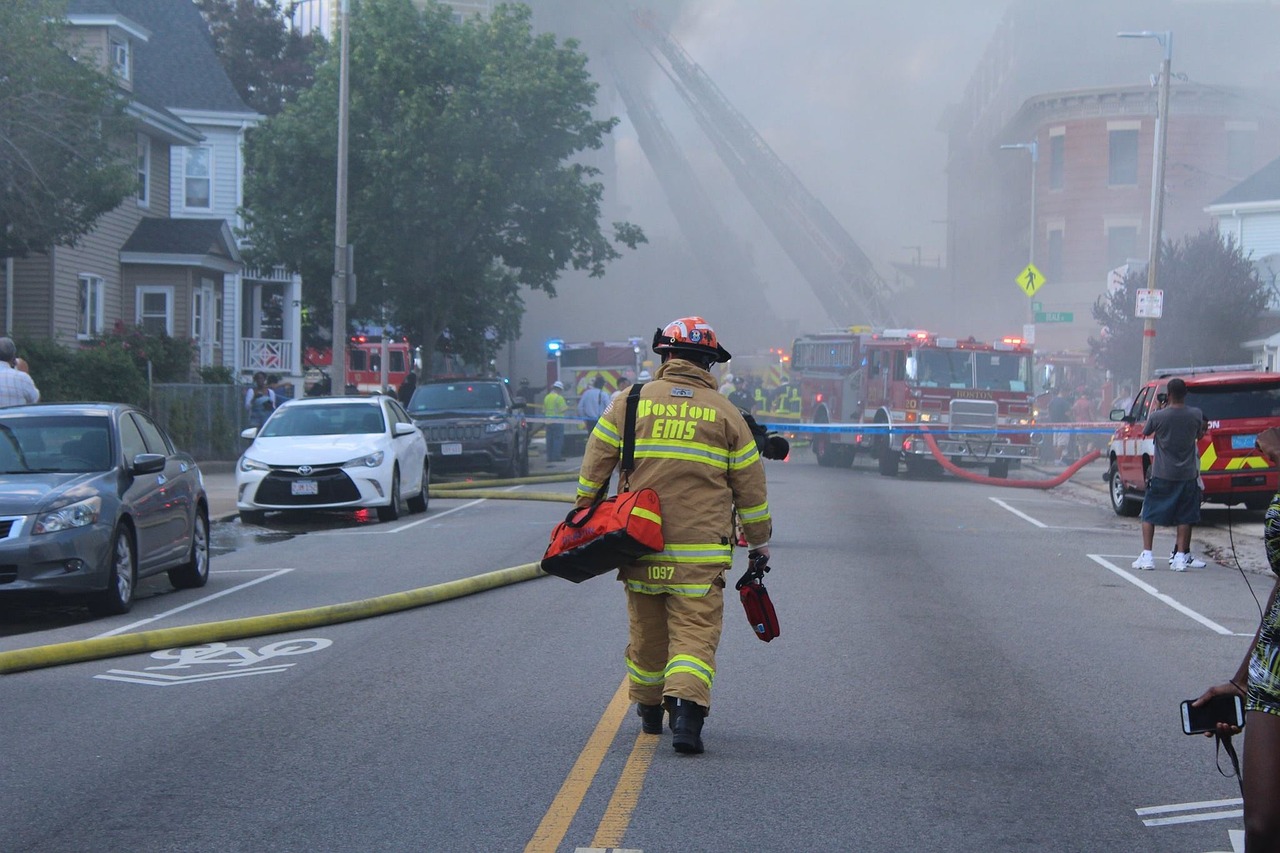
Medical Professionals
When it comes to emergencies, having the right on speed dial can be a game changer. Imagine being in a situation where every second counts, and you need immediate guidance or assistance from someone who understands your medical history. This is why knowing your primary care physician and any specialists you may see is crucial. These individuals are not just healthcare providers; they are your partners in health, equipped with the knowledge of your unique medical needs.
In a health crisis, the last thing you want to do is scramble for contact information. Instead, having a dedicated section in your phone or a written list can save you precious time. Here’s a quick checklist of what to include:
- Primary Care Physician: Include their name, phone number, and office address.
- Specialists: If you have any specialists, such as a cardiologist or endocrinologist, keep their contact details handy as well.
- Pharmacy: Your local pharmacy's number can be essential for refilling prescriptions or asking about medication interactions.
It’s also wise to have a list of any chronic conditions or allergies you may have, along with the medications you take. This information can be invaluable to medical professionals who may not be familiar with your history. When you arrive at an emergency room or urgent care facility, the staff will need to know your medical background to provide the best care possible.
In addition, consider establishing a relationship with your local urgent care facilities. These centers are often less crowded than emergency rooms and can provide quick treatment for non-life-threatening issues. Having their contact information can help you avoid long wait times when you need care urgently.
In summary, knowing your medical professionals and having their contact information readily available is not just about convenience; it’s about being prepared. In a world where emergencies can strike at any moment, it pays to be proactive. So, take a moment to gather this information and store it in a safe place. You never know when it might come in handy!
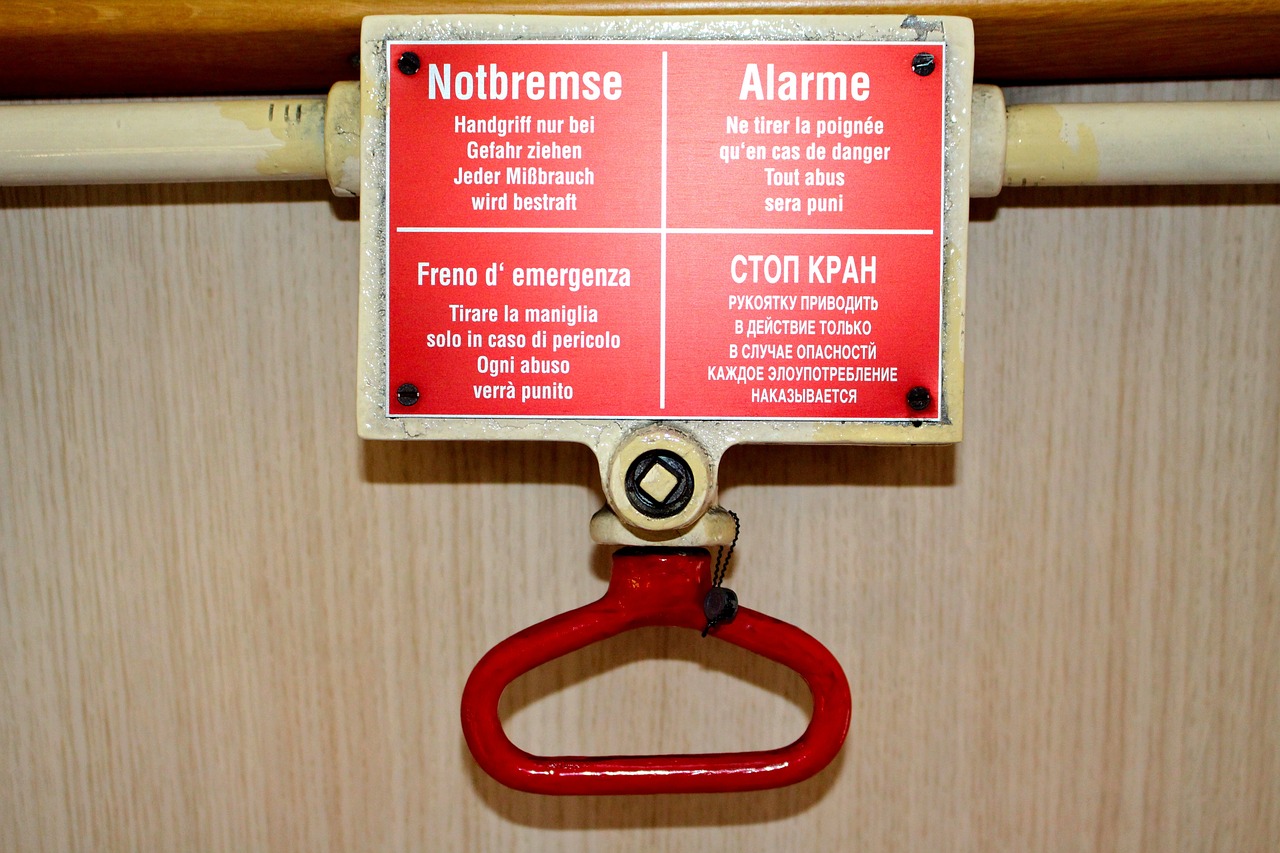
Local Hospitals
When it comes to emergencies, knowing your local hospitals can be a game-changer. Imagine you're in a situation where every second counts; having the right information at your fingertips can make all the difference. Familiarizing yourself with nearby hospitals, their specialties, and contact details is not just smart—it's essential. You never know when you might need to rush to a hospital for yourself or a loved one, and being prepared can alleviate a lot of stress during a crisis.
Start by identifying the hospitals closest to your home, workplace, or any frequently visited areas. It's a good idea to keep a list of these hospitals along with their addresses and phone numbers. Here’s a simple table to help you organize this important information:
| Hospital Name | Address | Phone Number | Specialties |
|---|---|---|---|
| City General Hospital | 123 Main St, Anytown | (555) 123-4567 | Emergency, Cardiology, Pediatrics |
| Saint Mary's Medical Center | 456 Elm St, Anytown | (555) 987-6543 | Trauma, Orthopedics, Neurology |
| Community Care Hospital | 789 Oak St, Anytown | (555) 555-1212 | Urgent Care, Family Medicine |
Having this information readily available not only helps you act quickly but also allows you to choose the right facility based on the specific medical needs at hand. For example, if someone is experiencing a heart attack, you wouldn't want to waste precious time driving to a hospital that specializes in pediatrics. Instead, you'd want to head straight to the facility with the best cardiology department.
Moreover, many hospitals have specific protocols for emergencies, such as trauma centers that are equipped to handle severe injuries. Knowing which hospitals are designated trauma centers can be crucial in life-threatening situations. Therefore, it’s beneficial to check if your local hospitals have this designation and what services they offer.
In addition to knowing the hospitals, it’s wise to keep a list of any special instructions or preferences for medical care that you or your family members may have. This could include allergies to medications, previous surgeries, or chronic conditions that need to be communicated to medical staff upon arrival. Having this information documented and accessible can ensure that you receive the appropriate care without delay.
In summary, being aware of your local hospitals, their specialties, and contact information can provide peace of mind. It empowers you to act swiftly and confidently in emergencies, knowing that you have the right resources at your disposal. So take a moment to gather this information and keep it handy—because when the unexpected happens, being prepared is the best way to ensure safety and quick response.
- What should I do if I can't remember my local hospital's contact information?
It's a good idea to store this information in your phone or keep a physical copy in a safe place at home. Consider using a medical app that allows you to store important health information, including hospital contacts. - Do all hospitals have emergency departments?
Not all hospitals have emergency departments. Some may only provide urgent care or specialized services. It's essential to check the services offered by each hospital. - How can I find out which hospital is best for my needs?
Research hospitals in your area based on their specialties, patient reviews, and accreditation. Websites like Healthgrades or the local health department can provide valuable information.
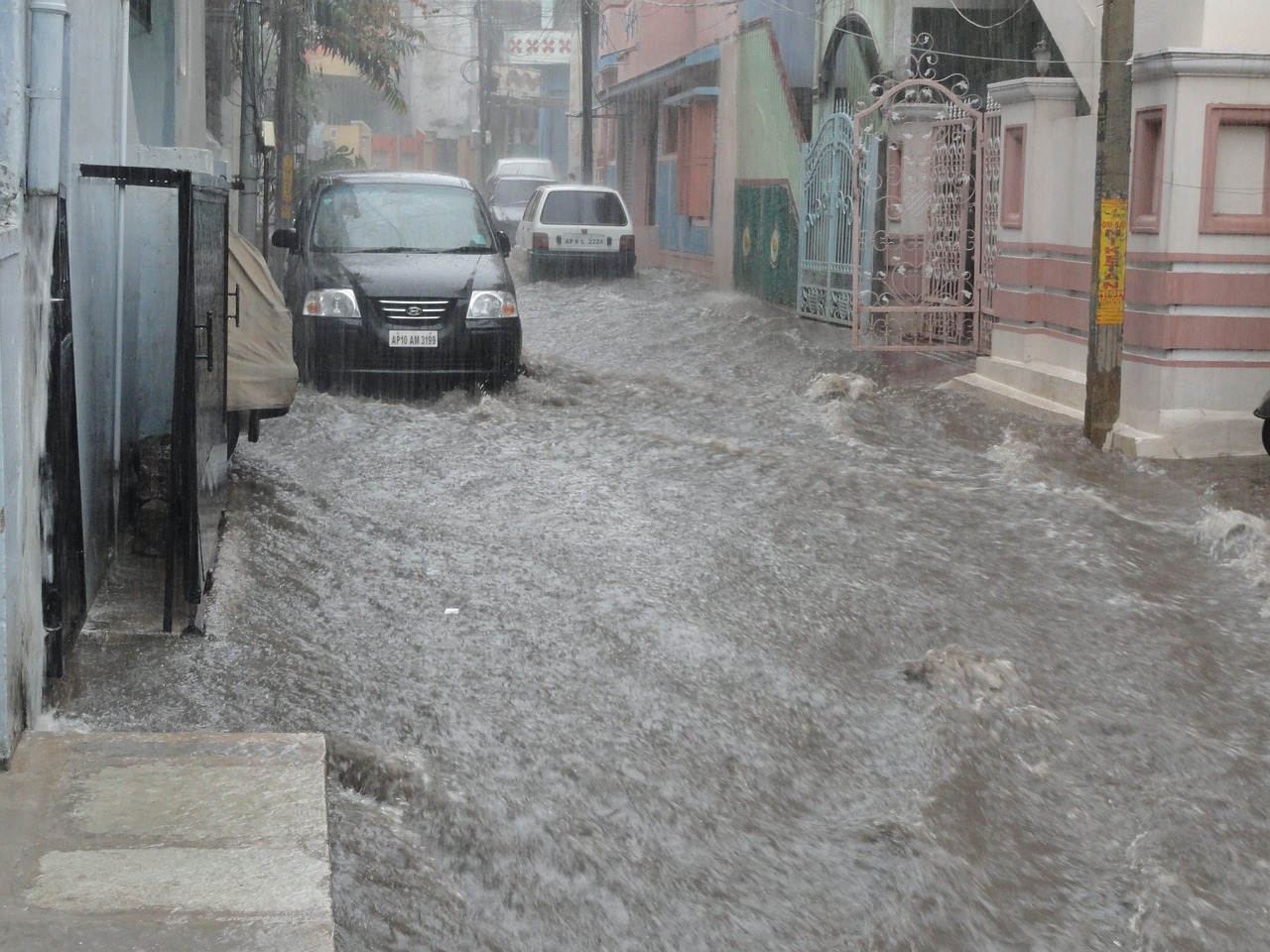
Emergency Room Contacts
In the whirlwind of a medical emergency, every second counts. That's why having the direct contact numbers for your local emergency rooms can be a game changer. Imagine this: you’re in a panic, your loved one needs urgent care, and the clock is ticking. Instead of fumbling through your phone or searching online, having these numbers saved can facilitate quicker communication. It’s like having a secret weapon in your pocket, ready to spring into action when you need it most.
When you have the emergency room contacts handy, it allows for faster decision-making and can prepare the medical staff for your arrival. In many cases, informing them about the situation beforehand can lead to quicker treatment upon arrival. Think of it as giving them a heads-up; they can mobilize resources and ensure that the right personnel is ready to assist you as soon as you walk through the door.
Here’s a quick tip: create a dedicated contact list on your phone or write it down and keep it in your wallet. This list should include:
- Emergency Room Name - Location and contact number
- Specialty Hospitals - If you have specific needs (e.g., trauma center, pediatric care)
- Directions - A brief note on how to get there, especially if it's not your usual hospital
Additionally, if you’re traveling or live in a new area, make it a point to familiarize yourself with the local hospitals and their emergency departments. You never know when you might need them, and being prepared can save you from unnecessary stress. In fact, consider keeping a small card in your wallet that lists these contacts, so you have them at your fingertips when you need them.
Remember, emergencies can be chaotic, and having a clear plan can make all the difference. So, take a moment to gather this information today, and you’ll be grateful you did when the unexpected happens. It’s all about being proactive and ensuring you have the right resources at hand to tackle any situation that comes your way.
Q1: Why is it important to have emergency room contacts readily available?
A1: Having emergency room contacts readily available can save precious time during a medical crisis, allowing you to communicate effectively and ensure that the necessary preparations are made for your arrival.
Q2: What should I include in my emergency room contact list?
A2: Your list should include the names and phone numbers of local emergency rooms, specialty hospitals, and directions to these facilities. This ensures you have quick access to vital information when time is of the essence.
Q3: How can I ensure I remember my emergency contacts?
A3: Consider saving these contacts in your phone under a specific label, writing them down on a card in your wallet, or even memorizing them. The key is to have them easily accessible when you need them.

Urgent Care Facilities
Urgent care facilities serve as a lifeline for those unexpected health issues that arise outside of regular doctor’s office hours. Imagine it's a Saturday afternoon, and you suddenly develop a high fever or sprain your ankle while playing sports. Instead of waiting for an appointment with your primary care physician or heading to the emergency room where the wait can be excruciatingly long, urgent care centers provide a convenient and efficient solution. They are designed to handle non-life-threatening conditions that still require prompt attention, allowing you to receive care without the hassle.
These facilities are typically staffed with qualified healthcare professionals, including physicians and nurse practitioners, who can diagnose and treat a variety of ailments. From minor fractures and cuts to infections and allergic reactions, urgent care centers are equipped to handle a wide range of medical issues. It's essential to know not just where these facilities are located, but also their operating hours, as many are open evenings and weekends, making them a perfect option for after-hours care.
When considering urgent care facilities, it's also wise to check if they accept your insurance and what services they provide. Some centers offer additional services such as on-site lab testing, X-rays, and even vaccinations, making them a comprehensive choice for immediate medical attention. To help you navigate your options, here’s a quick overview of what to look for:
| Facility Name | Address | Contact Number | Operating Hours |
|---|---|---|---|
| QuickCare Urgent Care | 123 Health St, Wellness City | (555) 123-4567 | Mon-Sun: 8 AM - 8 PM |
| CareNow Urgent Care | 456 Medical Ave, Caretown | (555) 765-4321 | Mon-Fri: 9 AM - 9 PM, Sat-Sun: 10 AM - 6 PM |
Having the contact information and operating hours of these facilities readily accessible can save you precious time in a medical crisis. It’s also a good idea to familiarize yourself with the nearest urgent care center before an emergency arises. This way, when the unexpected happens, you won’t be scrambling to find help. Remember, being prepared is half the battle when it comes to health emergencies!
- What types of conditions do urgent care facilities treat? Urgent care centers can treat a variety of non-life-threatening conditions such as sprains, minor fractures, infections, and allergic reactions.
- Are urgent care facilities open on weekends? Many urgent care facilities are open on weekends and evenings, providing flexibility for patients who need care outside of regular office hours.
- Do I need an appointment to visit an urgent care facility? Most urgent care centers operate on a walk-in basis, meaning you typically do not need an appointment.
- Will my insurance cover urgent care visits? Most insurance plans cover urgent care visits, but it’s always best to check with your provider beforehand.
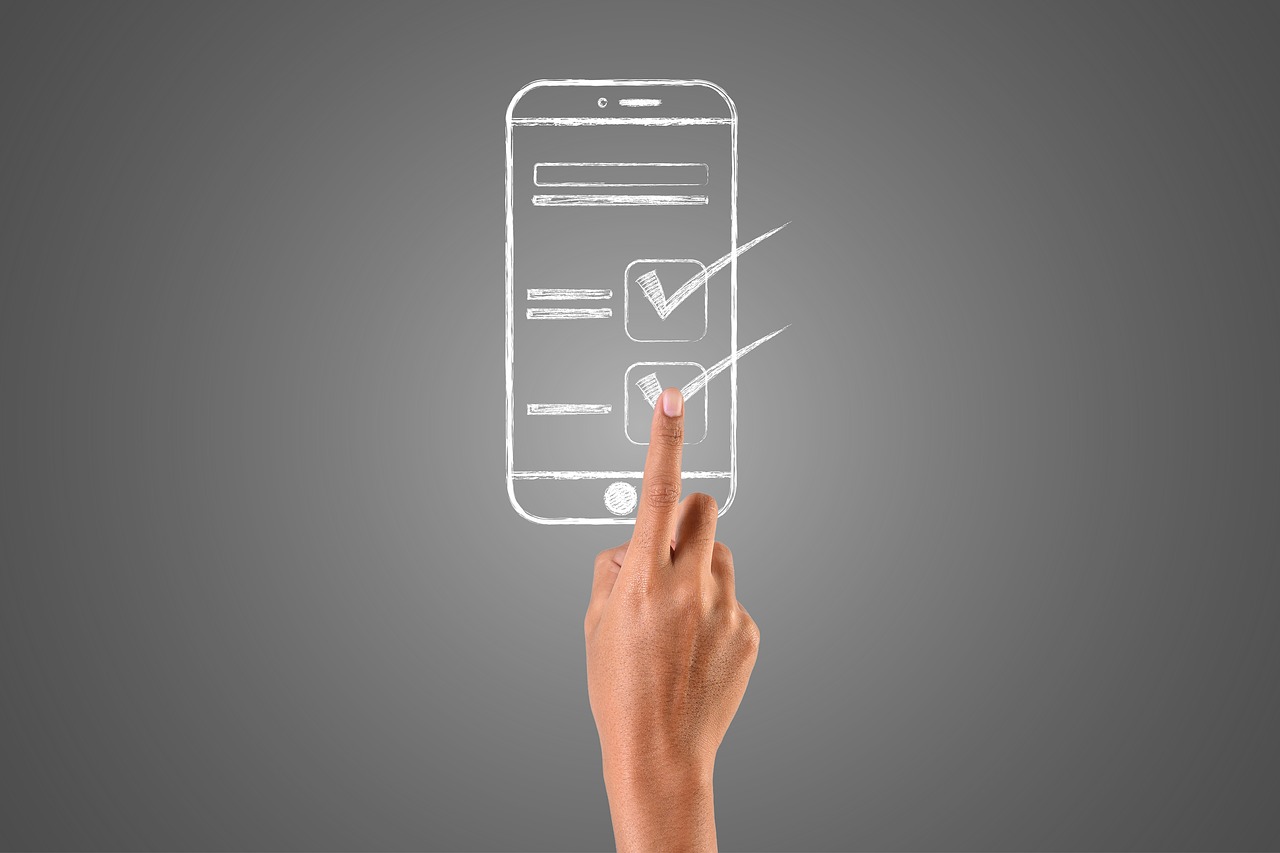
Poison Control Center
When it comes to emergencies, one of the most critical resources you can have at your fingertips is the . This invaluable service is designed to provide immediate assistance and expert guidance in situations involving toxic substances. Whether it's a household chemical, medication overdose, or exposure to a poisonous plant, knowing how to contact your local Poison Control Center can be a lifesaver. Imagine a scenario where a child accidentally ingests a cleaning product; the seconds spent looking for the right number could mean the difference between a minor incident and a serious health crisis.
Poison Control Centers operate 24/7, staffed by trained professionals who can assess the situation and provide tailored advice. They can help you determine the severity of the exposure, instruct you on whether to induce vomiting or seek medical attention, and guide you through the necessary steps to take. This level of immediate, expert support is invaluable, especially when panic can cloud judgment. Keeping their contact number readily available can empower you to act swiftly and confidently, ensuring that you’re never left in the dark during a critical moment.
To help you stay prepared, here’s a quick table summarizing essential information about the Poison Control Center:
| Information | Details |
|---|---|
| Contact Number | 1-800-222-1222 |
| Availability | 24/7, including holidays |
| Services Offered | Advice on poison exposure, treatment recommendations, and follow-up care |
| Who Can Call | Anyone, including parents, caregivers, and healthcare professionals |
In addition to having the contact number saved on your phone or posted somewhere visible in your home, it's wise to familiarize yourself with common household poisons. These can include items like cleaning products, medications, and even certain plants. By being aware of the potential dangers around you, you can take proactive steps to prevent accidents from happening in the first place. For example, storing harmful substances out of reach of children and using childproof caps can significantly reduce the risk of exposure.
Ultimately, the Poison Control Center is an essential part of your emergency contact list. Its role in providing immediate, expert advice can help you navigate through potentially life-threatening situations with confidence. Remember, in the face of a poison-related emergency, every second counts, so make sure you have this critical information easily accessible. It's not just about having the number; it's about being prepared to use it when it matters most.
- What should I do if I suspect poisoning? Call the Poison Control Center immediately for guidance.
- Can I call the Poison Control Center for non-emergencies? Yes, they can provide information and advice for non-urgent situations as well.
- Is there a charge for calling the Poison Control Center? No, the service is free and confidential.
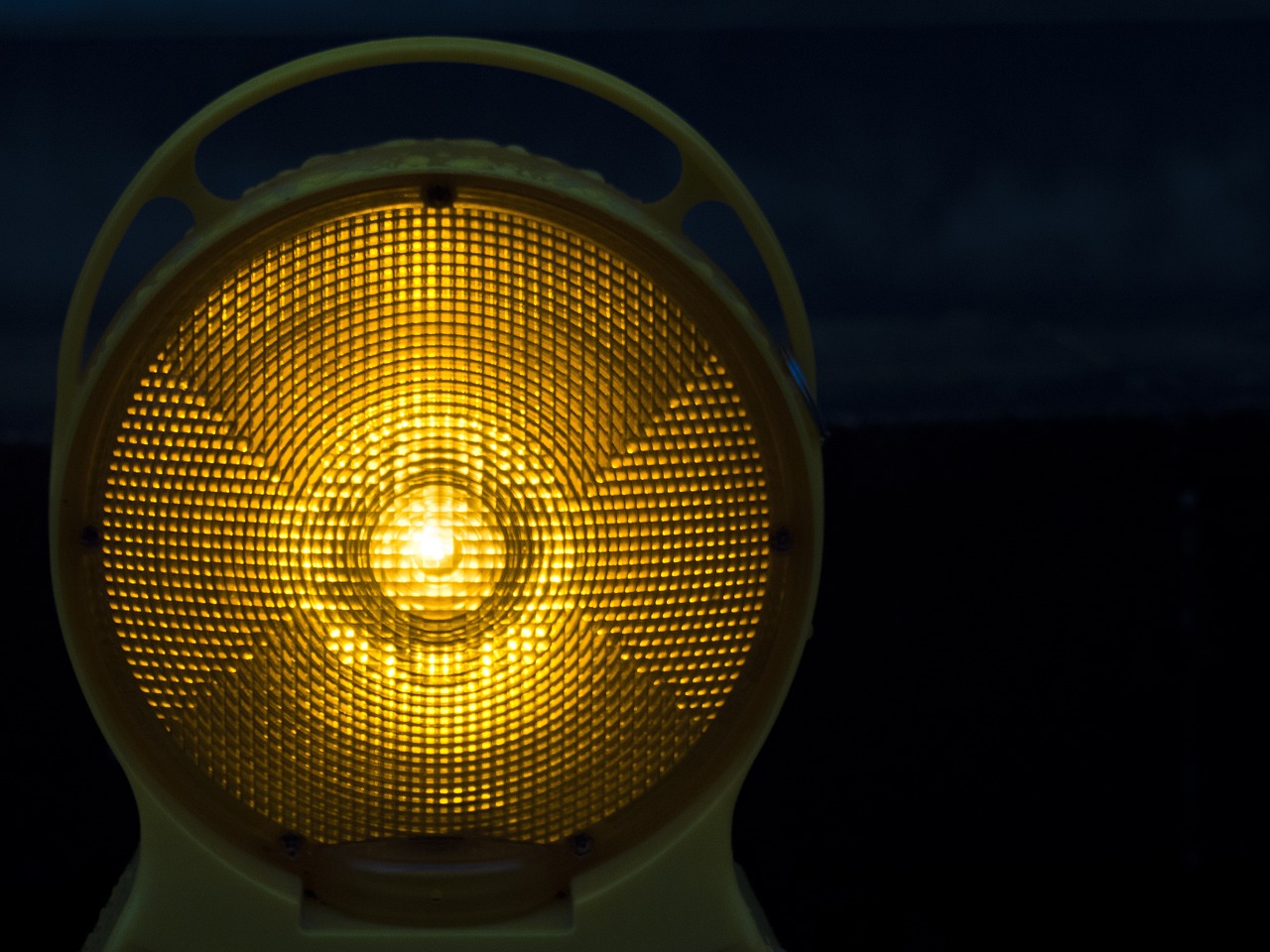
Local Emergency Services
When it comes to emergencies, time is of the essence. Familiarizing yourself with can be a game changer in critical situations. Knowing whom to call and how to reach them can mean the difference between a minor incident and a major crisis. Imagine you’re in a situation where every second counts; having these numbers saved in your phone or written down somewhere accessible can provide peace of mind.
Local emergency services include the police department, fire department, and ambulance services. Each plays a crucial role in ensuring safety and providing assistance during emergencies. It's not just about knowing that these services exist; it's about understanding their specific roles and how they can help you in various situations. For instance, the police are your go-to for law enforcement issues, while the fire department is essential in the event of a fire or hazardous situation. Ambulance services are vital for medical emergencies, ensuring that you get the care you need as quickly as possible.
Here’s a quick overview of the primary local emergency services you should be aware of:
| Service | Contact Number | Role |
|---|---|---|
| Police Department | 911 (or local number) | Law enforcement, crime reporting, assistance |
| Fire Department | 911 (or local number) | Fire emergencies, rescue operations |
| Ambulance Services | 911 (or local number) | Medical emergencies, patient transport |
In addition to knowing the contact numbers, it's also important to understand the procedures for reaching out to these services. For example, when you call 911, be prepared to provide specific information about your location and the nature of the emergency. This helps dispatchers send the right resources to your aid swiftly.
Furthermore, many localities have non-emergency numbers for police and fire services, which can be useful for situations that don’t require immediate action but still need attention. For instance, if you notice suspicious activity in your neighborhood or want to report a minor fire hazard, knowing these non-emergency contacts can help you report issues without tying up emergency lines.
In summary, being informed about your local emergency services is not just a good practice; it's a necessity. It empowers you to act quickly and efficiently in times of need. So, take a moment to jot down these contacts, save them in your phone, or even create a dedicated emergency contact list at home. You never know when you might need it!
Q: What should I do in case of an emergency?
A: Stay calm, assess the situation, and call the appropriate emergency service (911 for immediate assistance). Provide clear information about your location and the nature of the emergency.
Q: Should I save emergency numbers in my phone?
A: Absolutely! It’s a good idea to have all local emergency service numbers saved in your phone for quick access during an emergency.
Q: What if I need help but it's not an emergency?
A: In non-emergency situations, use the non-emergency numbers for local police or fire departments. This allows you to report issues without tying up emergency resources.
Q: How can I prepare my family for emergencies?
A: Create an emergency plan that includes contact numbers, meeting places, and procedures for various types of emergencies. Make sure everyone in your family knows the plan.
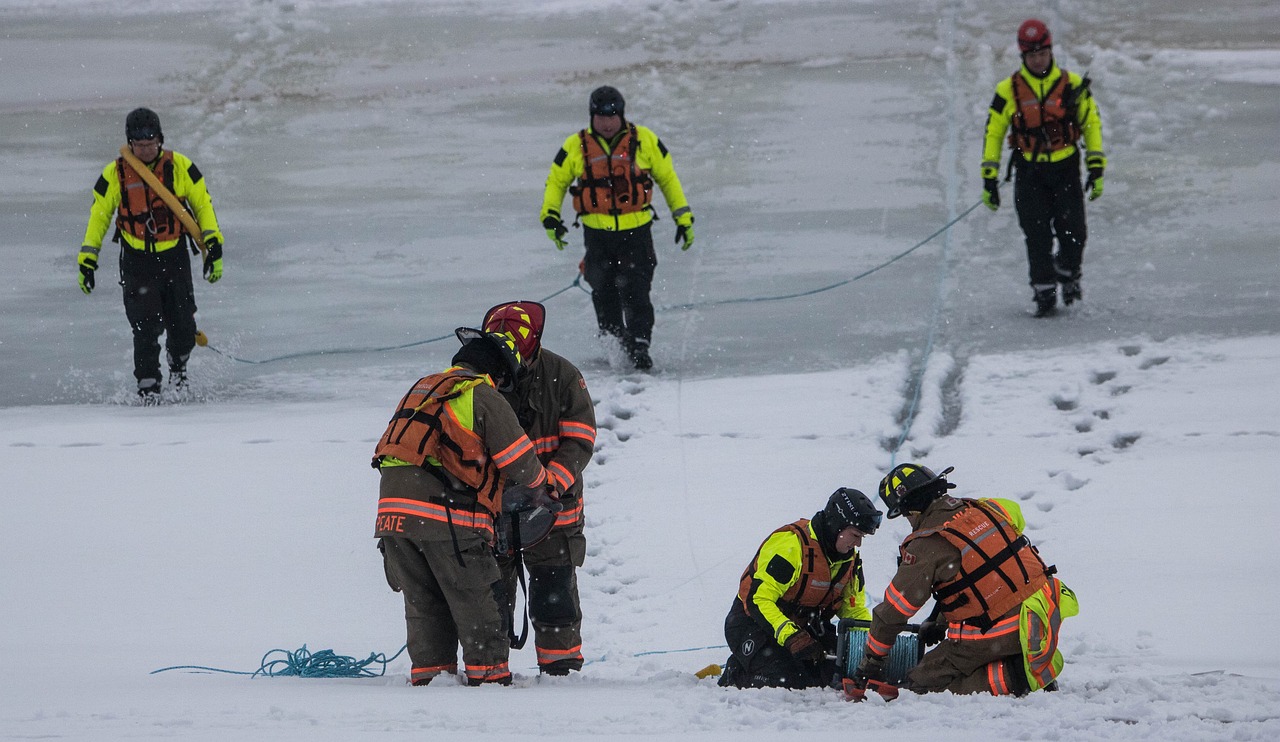
Fire Department
When it comes to emergencies, having a reliable connection to your local can be a literal lifesaver. Imagine a situation where a fire breaks out in your home or a neighbor's; the seconds it takes to dial the right number can mean the difference between safety and disaster. Therefore, it’s essential to not only know how to contact them but also to understand their role in community safety. Fire departments are equipped with trained professionals who respond to a variety of emergencies, including fires, hazardous material spills, and even rescue operations. These brave individuals are often the first responders in critical situations, so having their contact information readily available can provide peace of mind.
In many communities, the fire department is more than just a response team; they also engage in preventive measures such as fire safety education and community outreach programs. For instance, they may conduct fire drills in schools, offer home safety inspections, and provide information on how to create an emergency evacuation plan. Knowing your local fire department's number can also help you reach out for advice on fire safety practices, such as the importance of smoke detectors and fire extinguishers in your home. These small steps can significantly reduce the risk of a fire emergency.
Additionally, it’s important to familiarize yourself with the specific services your local fire department offers. Some departments may provide specialized services, including:
- Fire prevention education
- CPR and first aid training
- Community risk reduction programs
- Fire safety inspections
In case of a fire, having the fire department’s contact number saved in your phone or posted in a visible location can save precious moments. Most fire departments can be reached by dialing the emergency number, but it’s wise to have their direct line on hand for non-emergency inquiries. This way, if you have questions about fire safety or need to report a hazard, you won’t have to waste time searching for their number.
Furthermore, it’s a good idea to participate in community events where the fire department is involved. These events often provide an opportunity to meet firefighters, learn more about their work, and even tour the fire station. Building a relationship with your local fire department can foster a sense of community and trust, making it easier to seek help when you need it most.
In summary, knowing your local fire department's contact information and understanding their role in your community is crucial for safety. Whether it’s a fire emergency or a simple inquiry about fire safety, having that number handy can make all the difference. Don't wait until an emergency strikes; take action now to ensure your family and home are protected.
Q: What is the best way to contact my local fire department in an emergency?
A: In an emergency, you should always dial your local emergency number, typically 911, to reach the fire department quickly. For non-emergencies, look up your local fire department's direct phone number.
Q: How can I prepare my home for fire safety?
A: Regularly check smoke detectors, have a fire extinguisher on hand, create an evacuation plan, and practice fire drills with your family.
Q: What should I do if I see a fire?
A: Evacuate the area immediately, call 911, and do not attempt to extinguish the fire unless it is safe to do so.
Q: Does the fire department offer training programs?
A: Yes, many fire departments offer training programs in CPR, first aid, and fire safety. Check with your local department for available classes.

Police Department
When it comes to emergencies, knowing how to contact your local can be a game changer. Imagine finding yourself in a situation where you feel threatened or have witnessed a crime. The last thing you want is to fumble around trying to remember the number to call for help. That's why having this information readily available is crucial. It’s like having a safety net that you can rely on when things go south.
First off, it's essential to understand that police departments are not just for emergencies; they also provide valuable resources and assistance for various situations. Whether it's reporting a crime, seeking advice on personal safety, or even just needing help with a lost item, the police are there to assist you. Keeping their contact number handy allows you to act quickly when you need to.
In many areas, you can reach the police department by dialing 911 for urgent situations. However, for non-emergencies, it's important to have the direct contact number for your local precinct. This ensures that you can get the help you need without tying up emergency lines. Here’s a quick tip: write down the non-emergency number and keep it where you can easily access it, like on your fridge or in your phone contacts.
Additionally, many police departments have online resources where you can report crimes, access community programs, and even find out about local safety initiatives. This can be incredibly helpful in staying informed and connected with your community. Here’s a brief overview of what to expect when contacting your local police:
| Service | Description |
|---|---|
| Emergency Response | Dial 911 for immediate assistance in life-threatening situations. |
| Non-Emergency Assistance | Use the local precinct's number for issues that don’t require immediate action. |
| Community Programs | Access resources for crime prevention and community engagement. |
| Online Reporting | File reports for non-urgent situations via the police department's website. |
In summary, having your local police department's contact information easily accessible is not just a good idea; it’s a necessity. It empowers you to take action swiftly and effectively in situations that require law enforcement intervention. So, take a moment to jot down that number, and ensure that you and your loved ones are prepared for any unexpected situations that may arise.
- What is the emergency number for police? The emergency number for police in the U.S. is 911.
- How do I find my local police department's non-emergency number? You can usually find this number on your city or town's official website.
- Can I report a crime online? Yes, many police departments offer online reporting for non-emergency situations.
- What should I do if I feel unsafe? If you feel threatened, do not hesitate to call 911 or your local police department for assistance.

Insurance Providers
When it comes to emergencies, having your insurance provider's contact information readily available can make a world of difference. Imagine being in a situation where every second counts, and the last thing you want to worry about is hunting down a phone number. Whether it's a medical emergency or an auto accident, knowing how to reach your insurance provider can help expedite claims and ensure you get the assistance you need without unnecessary delays.
In the whirlwind of a crisis, your mind can race with questions about coverage and costs. By having your insurance provider's details on hand, you can quickly clarify what services are covered and what steps to take next. This is especially crucial when you're dealing with health emergencies, where understanding your health insurance coverage can streamline the process of receiving care. You want to focus on getting better, not on navigating the complexities of insurance paperwork.
For vehicle-related incidents, knowing your auto insurance provider's contact number is equally important. After an accident, the last thing you want is to be left in the dark about how to report the incident or what your policy entails. With a quick call, you can report the accident, understand your options for repairs, and even get help with rental car arrangements. It’s like having a lifeline when the unexpected happens.
| Type of Insurance | Contact Information | Important Notes |
|---|---|---|
| Health Insurance | (XXX) XXX-XXXX | Know your policy number for faster assistance. |
| Auto Insurance | (XXX) XXX-XXXX | Report accidents immediately for quicker claims. |
Additionally, consider setting up a digital folder on your phone or a physical one at home that contains all your important insurance documents. This folder can include your policy numbers, contact information, and any relevant medical history that might be useful during emergencies. A little preparation can go a long way in ensuring that you are ready to tackle any situation that comes your way.
In summary, while it may seem like a mundane task to jot down your insurance provider's contact details, it’s a small step that can lead to significant peace of mind. In times of crisis, having this information at your fingertips can not only save you time but also reduce stress, allowing you to focus on what truly matters: your safety and well-being.
Q: Why is it important to have insurance provider contacts readily available?
A: In emergencies, quick access to your insurance provider can expedite claims and assistance, ensuring you receive the care or support you need without delays.
Q: What information should I keep about my insurance providers?
A: It's advisable to keep the contact number, policy number, and any specific details about coverage that may be relevant during emergencies.
Q: How can I organize my insurance information effectively?
A: Consider creating a digital folder on your phone or a physical binder at home that includes all important documents, making it easy to access in a hurry.

Health Insurance Contacts
In the whirlwind of a medical emergency, the last thing you want to be caught off guard by is the complexities of health insurance. Having your health insurance provider's contact information readily available can be a game changer. Imagine being in a situation where you need immediate medical assistance, and not knowing how to navigate the insurance maze could delay your care. That’s why keeping this information at your fingertips is not just a good idea; it’s essential.
When you are facing a health crisis, time is of the essence. You might find yourself asking, "What do I do next?" or "How do I get my insurance to cover this?" This is where having your health insurance contact details comes into play. Typically, your health insurance card will have a customer service number printed on it, but it’s also wise to save this information in your phone or keep a physical copy in your emergency kit. This way, you won’t be scrambling to find it when you need it the most.
Additionally, understanding your provider's hours of operation is crucial. Some insurance companies have 24/7 customer service, while others may only be reachable during business hours. Knowing this can help you plan your calls effectively. It’s also beneficial to familiarize yourself with the types of questions you might need to ask, such as:
- What services are covered under my plan?
- How do I find in-network providers?
- What is the process for pre-authorization?
- Are there any co-pays or deductibles I need to be aware of?
Moreover, if you have specific health needs or are undergoing ongoing treatments, keeping a record of these details can be invaluable. You can create a simple table to track your health insurance contacts and vital information:
| Insurance Company | Contact Number | Policy Number | Notes |
|---|---|---|---|
| ABC Health Insurance | (123) 456-7890 | XYZ123456 | 24/7 Customer Service |
| XYZ Medical Coverage | (987) 654-3210 | ABC654321 | Business Hours: 8 AM - 8 PM |
By proactively organizing this information, you are not just preparing for a potential crisis; you are empowering yourself to make informed decisions quickly. Remember, when every second counts, having your health insurance contacts easily accessible can lead to smoother communication with healthcare providers and faster access to necessary medical services. So, take a moment to gather this information today; it could very well make a difference tomorrow.
Q: Why is it important to have my health insurance contact information readily available?
A: Having your health insurance contact information on hand allows for quick communication during medical emergencies, ensuring you understand your coverage and can access necessary services without delay.
Q: What should I do if my health insurance provider is not available?
A: If your primary provider is unavailable, check for an alternative customer service number on their website or your insurance card. You can also reach out to your healthcare provider for assistance.
Q: How can I keep my health insurance information organized?
A: You can create a simple table or document that lists your insurance providers, contact numbers, policy numbers, and any important notes. Keep this document in your emergency kit and save it on your phone for easy access.
Q: Should I update my health insurance contacts regularly?
A: Yes, it's a good practice to review and update your health insurance contacts annually or whenever you change plans to ensure you have the most current information available.
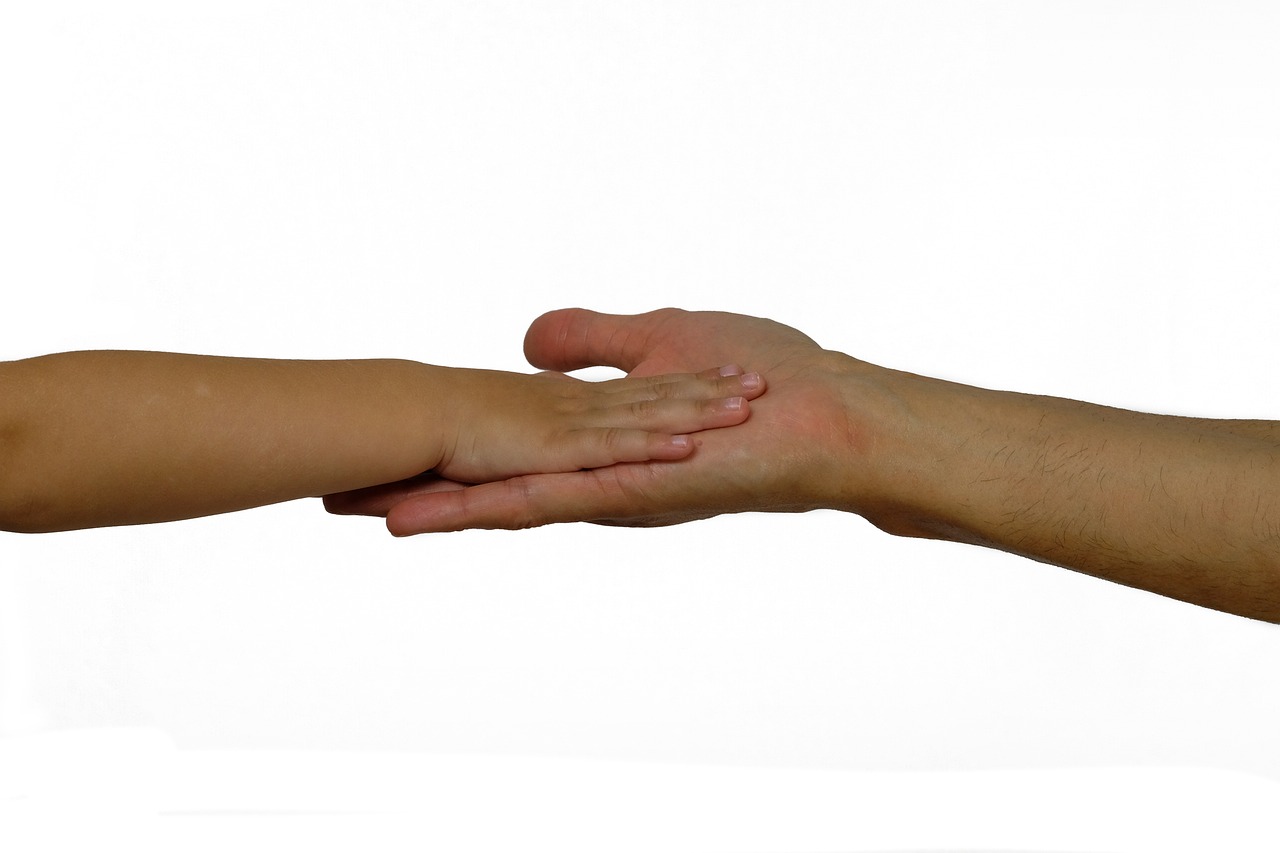
Auto Insurance Contacts
When it comes to vehicular accidents, having your auto insurance provider's contact information at your fingertips can be a game changer. Imagine being in a stressful situation where every second counts; you wouldn't want to waste precious time searching for a number that could help you navigate the chaos. By keeping your auto insurance contacts readily available, you can report incidents immediately, receive guidance on claims, and start the repair process without unnecessary delays. It's like having a safety net that you can rely on when life throws you a curveball.
In the heat of the moment, clear communication with your insurance provider can make a world of difference. You'll want to have their direct phone number and possibly even a dedicated claims hotline. This way, you can avoid the frustrating maze of automated menus that can often lead to more confusion. Having a direct line to a human being who understands your situation can ease your anxiety and help you get the assistance you need.
Additionally, consider storing your auto insurance information in a few different places. You might keep a physical copy in your glove compartment, which is easily accessible if you ever find yourself in a tricky situation. Moreover, having a digital copy in your phone or a cloud storage service can ensure you always have access to it, even if you're not in your vehicle. This dual approach guarantees you're covered, no matter where you are.
It's also wise to familiarize yourself with the specific steps your insurance company requires after an accident. For example, do they require you to file a police report? What information do they need from you? Understanding these details ahead of time can save you a lot of headaches later on. Here’s a quick table summarizing what information you should have ready when you contact your auto insurance provider:
| Information to Have Ready | Description |
|---|---|
| Policy Number | Your unique policy identifier |
| Contact Information | Your phone number and address |
| Details of the Incident | What happened, where, and when |
| Other Parties Involved | Names and contact info of others involved |
| Police Report | If applicable, have the report number ready |
By being prepared and having this information at hand, you can streamline the process and focus on what really matters—getting back on the road safely. Remember, the key is not just having the contact information, but also knowing how to use it effectively. So, make sure you take a few minutes today to gather your auto insurance contacts and keep them accessible. You never know when you might need them!
- What should I do immediately after an accident? Make sure everyone is safe, call emergency services if needed, and contact your insurance provider as soon as possible.
- How can I find my insurance policy number? Your policy number can usually be found on your insurance card or in the policy documents provided by your insurance company.
- What if I can't reach my insurance provider? If you have trouble getting in touch, check their website for alternative contact methods, such as email or online chat.
Frequently Asked Questions
- Why is it important to have emergency contacts?
Having emergency contacts is crucial because they provide a lifeline in urgent situations. Whether you face a medical crisis or a personal emergency, knowing who to call can make all the difference. It's like having a safety net that ensures you're not alone when things get tough.
- Who should I include in my emergency contacts?
Your emergency contacts should include immediate family members, close friends, and trusted neighbors. Additionally, it's wise to have contact information for medical professionals, local hospitals, and emergency services like police and fire departments. Think of it as assembling your very own team of superheroes ready to spring into action!
- What information should I keep for my medical contacts?
For your medical contacts, ensure you have the names, phone numbers, and addresses of your primary care physician and any specialists you see regularly. Don't forget to include local hospitals and urgent care facilities. This way, you won't be scrambling to find the right number when every second counts.
- How can I find my local emergency services quickly?
You can easily find local emergency services by searching online or using a mobile app that provides emergency contact information. It's a good idea to save their numbers in your phone or keep a printed list in an accessible location at home. Think of it as having a treasure map to your safety!
- What should I do if I don't have my insurance information handy?
If you don't have your insurance information readily available during an emergency, try to stay calm. Most healthcare providers can help you retrieve your policy details, but it can slow down the process. That's why it's super important to keep this information in a safe yet accessible spot, like a digital note or a physical card in your wallet.



















